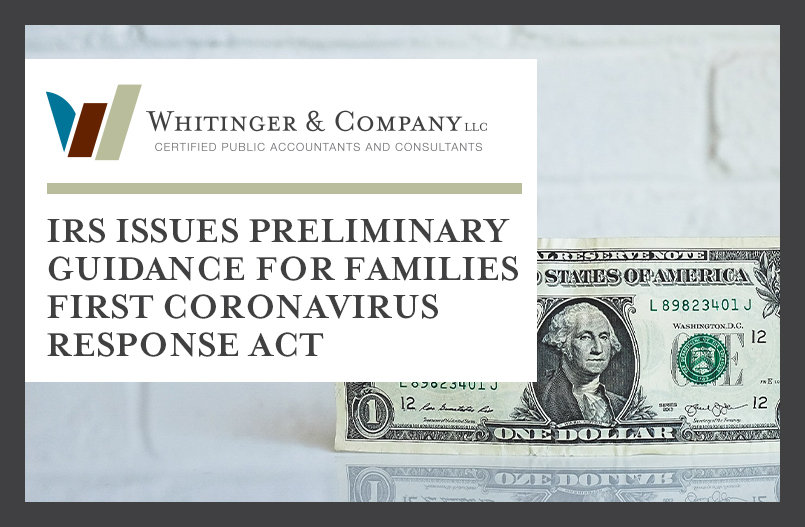On March 20, the IRS, the Treasury Department, and the Labor Department announced preliminary guidance for claiming two new refundable payroll tax credits provided under the Families First Coronavirus Response Act.
IR 2020-57 allows eligible employers who pay qualifying sick or child care leave to coronavirus-affected employees to retain an amount of the payroll taxes equal to the amount of qualifying sick and child care leave that they paid, rather than deposit them with the IRS. Eligible employers are generally businesses and tax-exempt organizations with fewer than 500 employees. Eligible employers will be able to claim these credits based on qualifying leave they provide between the effective date and December 31, 2020. The credit also includes an allocable share of health insurance costs for eligible employees during the leave period.
The payroll taxes that are available for retention include withheld federal income taxes, the employee share of Social Security and Medicare taxes, and the employer share of Social Security and Medicare taxes with respect to all employees. If there are not sufficient payroll taxes to cover the cost of qualified sick and childcare leave paid, employers will be able to file a request for an accelerated payment from the IRS. The IRS expects to process these requests in two weeks or less. The details of this new, expedited procedure should be announced this week.
The following example illustrates how this would apply:
An eligible employer who paid $5,000 in sick leave as required by the Act and is otherwise required to deposit $8,000 in payroll taxes, including taxes withheld from all its employees. The employer can retain up to $5,000 of the $8,000 of taxes it was going to deposit with the IRS. The employer would only be required under the law to deposit the remaining $3,000 on its next regular deposit date.
Equivalent income tax credits are available to eligible self-employed individuals unable to perform services due to coronavirus-related circumstances. Those individuals will claim the credits on their income tax return, and they can take the expected credit amount into account in reducing their 2020 estimated tax payments.
The Labor Department will issue a temporary 30-day non-enforcement period for good-faith compliance efforts and will instead focus on compliance assistance during that period. Additionally, the Labor Department will provide further guidance on exemption eligibility for businesses with fewer than 50 employees.
We encourage all businesses potentially impacted by the Act’s mandatory paid leave benefits to seek proper legal counsel in determining how to apply these labor and employment laws to your specific situation.
Thank you for your continued support and loyal business as we all navigate these unique circumstances. To streamline communications with our team you can download the Whitinger Staff Contact List here.
Please reach out to your accountant with any questions or concerns you may have.
We are here and ready to help.
-Whitinger & Company


